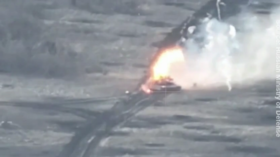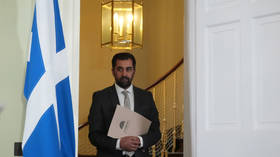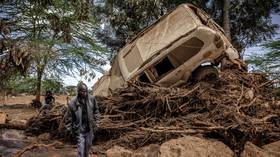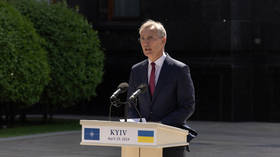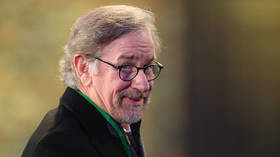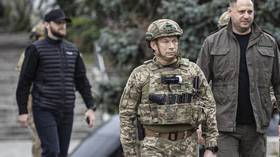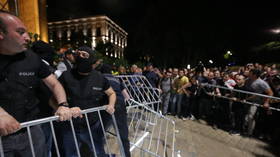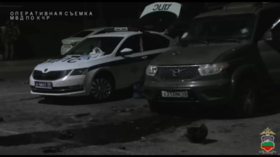Indian ethnic violence victims laid to rest in mass ceremony
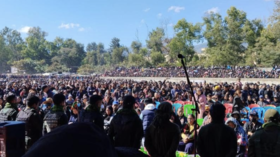
Some 87 people from the Kuki and Zomi tribes who died in ethnic clashes in India’s northeastern Manipur state over the past seven months were finally laid to rest under heavy security on Wednesday amid government efforts to restore normalcy in the region.
The mass burial ceremony took place at the Kuki-Zo Martyrs Cemetery in Sehken near Churachandpur town. The youngest victim to be buried was just one month old, while the oldest was an 87-year-old man, according to local media reports.
Thousands gathered at the cemetery to join the emotional ceremony, with gospel songs being sung and floral wreaths placed on the coffins before they were lowered into the ground with full honors accompanied by an 87-gun salute from different tribes.
It was the second mass burial ceremony of Kuki-Zo victims this month after 64 bodies were shifted from morgues by the state government, following Supreme Court directives. The bodies could not be recovered earlier due to relentless violence in both the hill and valley areas of the state, making inter-district travel difficult for civilians.
#Manipur | Hundreds of people gathered at #Churachandpur - one of the worst hit cities by #ManipurViolence - for a mass burial. pic.twitter.com/9M18iYNuaU
— Mojo Story (@themojostory) December 20, 2023
The apex court on November 28 ordered the state government to ensure a decent and dignified burial for the unidentified and unclaimed bodies of people who were killed in the ethnic conflict since May.
Earlier, the human rights committee set up by the Supreme Court claimed there were 175 bodies in mortuaries throughout Manipur. “We cannot keep the bodies in the mortuary indefinitely,” said Chief Justice of India Dhananjaya Yeshwant Chandrachud.
The clashes between communities broke out in May following a ‘tribal solidarity march’ organized by the Kuki and Zomi tribal communities, which live in the hills, to protest against the demands of the Meitei people, a majority that lives in the Imphal Valley, for special status under India’s constitution.
Tensions between the two communities peaked in the following months, leaving dozens dead and tens of thousands displaced. The state and federal governments, along with law enforcement agencies, have been working to curtail the violence through curfews, internet suspensions, and the deployment of additional security personnel to the troubled region.
Speaking to RT in August, Manipur’s Chief Minister N Biren Singh implored the affected communities to choose the path of “forgiving and forgetting” for peace return in the state. Since then, he has claimed that the violence had been planned years ago “with the demand for a separate nation.”
Indian Prime Minister Narendra Modi urged the people of the state in August to hold onto “peace” and vowed that “justice will be delivered.” “We will together find a solution to this challenge. We will establish peace again. I assure the people of Manipur that we will spare no effort in returning the state to the path of development,” he said in an address to parliament at the end of a three-day debate following a no-confidence motion filed by opposition parties in July, citing Modi’s “silence” on the issue.
Where India Meets Russia – We are now on WhatsApp! Follow and share RT India in English and in Hindi



